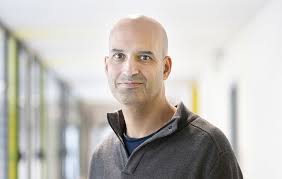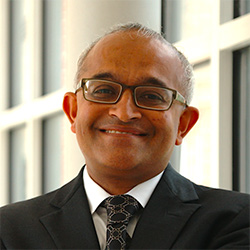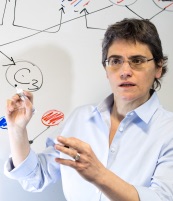Program > Keynote talks
 |
"Out of sight, out of mind: the plumbing problem in Cybersecurity",
Carlos Aguilar, SandBoxAQ
Abstract
Cryptography is the unseen foundation of modern digital security—an essential plumbing system that quietly supports everything from authentication to data protection. Yet, like real plumbing, it is often neglected, hidden away until something breaks. This presentation explores the persistent challenge of cryptographic management: how outdated algorithms, forgotten keys, and ad hoc practices silently undermine cybersecurity. By examining why cryptography so often slips “out of sight, out of mind,” we highlight the organizational risks of treating it as an afterthought. Finally, we discuss practical steps—such as systematic cryptographic inventories, lifecycle management, and proactive governance—that can bring visibility and resilience to this critical, but too often overlooked, component of cybersecurity.
Short Bio
Carlos Aguilar Melchor is the Chief Scientist in Cybersecurity at
SandboxAQ. In the past he worked as professor for 15 years and as
consultant for multiple private sector actors and international
organizations, contributing to a variety of domains such as cryptography,
privacy, cyber security, and artificial intelligence. He is co-inventor of
one of the NIST PQC candidates selected for standardisation, and the author of more than hundred publications.
|
 |
"Covert Social Influence Operations: Past, Present, and Future",
V.S. Subrahmanian, Northwestern University
Abstract
Covert Social Influence Operations (CSIOs) have been studied for almost a dozen years. Since a first study of CSIOs in the 2014 Indian election and the DARPA Twitter Influence Bot Detection Challenge of 2015 under the SMISC Program, the field has come a long way. After a quick review of CSIOs of the past, this talk will quickly move on to how recent advances in AI will influence the direction of CSIOs. We can think of CSIOs as involving a threat actor (CSIO operator) targeting a defender (e.g. social platform). Though the extraordinary ability of modern AI to generate realistic text, image, video, audio, and multimodal content poses a potential threat, I will argue that the even more extraordinary ability of AI to dynamically adapt to changing circumstances and defender tactics will likely pose an even bigger threat. (The second part of this talk reflects joint work with Valerio LaGatta and Youzhi Zhang.)
Short Bio
V.S. Subrahmanian is the Walter P. Murphy Professor of Computer Science at the McCormick School of Engineering, Northwestern University and Buffett Faculty Fellow at the Northwestern Roberta Buffett Institute for Global Affairs. He is also the head of the Northwestern Security and AI Laboratory (NSAIL). Prior to this, Subrahmanian was The Dartmouth College Distinguished Professor in Cybersecurity, Technology, and Society at Dartmouth College with tenure in the Computer Science Department and Director of the Institute for Security, Technology and Society (ISTS). Prior to joining Dartmouth, he was a tenured Professor in the University of Maryland's Computer Science Department. He served a 6.5 year stint as Director of the University of Maryland's Institute for Advanced Computer Studies where he co-founded the Lab for Computational Cultural Dynamics and founded the Center for Digital International Government. His work stands squarely at the intersection of data-driven AI for increased security, policy, and business needs. Prof. Subrahmanian has been an invited speaker at the United Nations, Capitol Hill, the Mumbai Stock Exchange, and numerous other prestigious forums.
|
 |
"Data Privacy and Security in Distributed Collaborative Scenarios",
Pierangela Samarati, Università degli Studi di Milano, Italy
Abstract
The availability of highly performing systems and services (e.g., cloud/fog/edge/IoT) for gathering, storing, and processing data, and of analysis techniques on large data collections, bring great benefits on a personal, business, economic and social level. The collection, sharing, and analysis of data, with contributions from different sources and different actors are in fact great enabling factors for the increasingly digitally evolved society. This typically also involves data storage and computation by external providers that may be either not authorized to access information or not fully trusted. In this talk, I will address in particular: the protection of data in collaborative distributed computations involving multiple authorities and providers, the assessment of integrity of outsourced queries and computations, and some privacy challenges and directions in AI/ML scenarios.
Short Bio
Pierangela Samarati is a Professor at the Department of Computer Science of the Università degli Studi di Milano, Italy. Her main research interests are on data and applications security and privacy, especially in emerging scenarios. She has participated in several EU-funded projects involving different aspects of information protection, also serving as project coordinator. She has published more than 300 peer-reviewed articles in international journals, conference proceedings, and book chapters. She has been Computer Scientist in the Computer Science Laboratory at SRI, CA (USA). She has been a visiting researcher at the Computer Science Department of Stanford University, CA (USA), and at the Center for Secure Information Systems of George Mason University, VA (USA). She is the chair of the IEEE Systems Council Technical Committee on Security and Privacy in Complex Information Systems (TCSPCIS), of the ERCIM Security and Trust Management Working Group (STM), and of the ACM Workshop on Privacy in the Electronic Society (WPES). She is a member of several steering committees. She is IEEE Fellow (2012), ACM Fellow (2021), IFIP Fellow (2021). She has received the ESORICS Outstanding Research Award (2018), the IEEE Computer Society Technical Achievement Award (2016), and the IFIP WG 11.3 Outstanding Research Award (2012), and the IFIP TC11 Kristian Beckman Award (2008).
|
|


